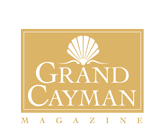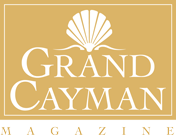(Stage Direction: Uttered in an annoying, bellowing, braying, manner):
“Mr. President . . . (Louder): Mr. President! . . . (Bleating): MR. PRESIDENT!!! . . .
—The White House Press Corps
When it comes to the rude and the crude, let’s not just blame the press corps. Okay, let’s, but just for another moment . . .
The media in the U.S., following the election of Donald Trump, have somehow maneuvered themselves into a 14 percent approval rating in various polls. Frankly, we don’t believe the polls. Given their record for accuracy (think Brexit; think Hillary), we think the press’s popularity is probably overstated. With numbers like that, if reporters were potato chips, they would be recalled from the supermarket shelves.
But who are we to judge?
Well, spend just a few minutes in the company of Mr. Manners, and you’ll quickly realize that he knows very little about anything, certainly nothing practical such as how to bake a cake or fix a leaky commode.
But even as a child, and certainly by mid-passage, a talent did emerge. Mr. Manners was precociously good at manners. Perhaps his upbringing explains it:
All witnesses confirm that Mr. Manners was a bit of a priss as a child. His generous aunt and her coterie of septuagenarian bridge players made a big fuss over him, coo-cooing constantly and spoiling him shamelessly. However, almost from the cradle, they gave him a master class in the art of good behavior. Before age 5, he handled complicated cutlery with confidence, and soon thereafter was writing thank-you notes that sounded sincere. As an infant, he sprinkled his conversation not with “MaMa” and “DaDa” but with “Yes, Ma’ams” and “No, Sirs.”
Coarseness and incivility were foreign to him then, and foreign to him now. Today, he is remarkably unprepared to deal with what columnist George F. Will calls, the “pandemic of vulgarity” awash in the world.
In Cayman, we are not immune. Our forefathers here, though tough, were known for their civility and gentility. They respected their elders as well as authority. The advertising/marketing descriptor “Caymankind” is not just a slick copywriter’s creation. It’s rooted in Cayman’s past – and in the truth.
Let Mr. Manners tell you a true story:
Pinnacle Media, parent company of this magazine, invited to the island a recruit for an editorial position with the Cayman Compass. Accommodations and a rental car were secured. Unfortunately, the candidate had never driven on the left, never experienced right-hand drive, and had never met a roundabout.
He became flustered (Left-lane? Right lane?). He hit the curb with some force, punctured the front tire and damaged the rim. He got out of the car, and apparently went in to full-panic mode.
Along behind him came a Good Samaritan. He calmed the young man down (“Don’t worry; this happens all the time to tourists”), changed the tire, refused the proffered payment for his troubles, and went anonymously on his way.
We learned the following day the “Samaritan” was none other than Cayman’s Minister of Finance and Economic Development, the Hon. Marco Archer!
“Caymankindness,” though perhaps difficult to measure, is one of the true treasures of these islands, and we must take care that we do not let it slip away.
What we are witnessing in the U.S. is the coarsening of an entire population, enabled, if not encouraged, by the mass media – news broadcasters (the “14 percenters”), moviemakers (trafficking in violence and favoring anything that explodes), and so-called “celebrities” who are becoming less known for performing and more known for their profane protests.
As Cayman enters its campaign season, Mr. Manners urges all of our candidates (and we’ll probably have more than 100) to fortify their arguments but modulate their voices.
The good thing about bad manners is that they can easily be transformed into good manners and thoughtful behavior.
When in doubt, a good rule might be to ask yourself, “What would Mr. Manners – or, even better, Marco Archer – do?”



















